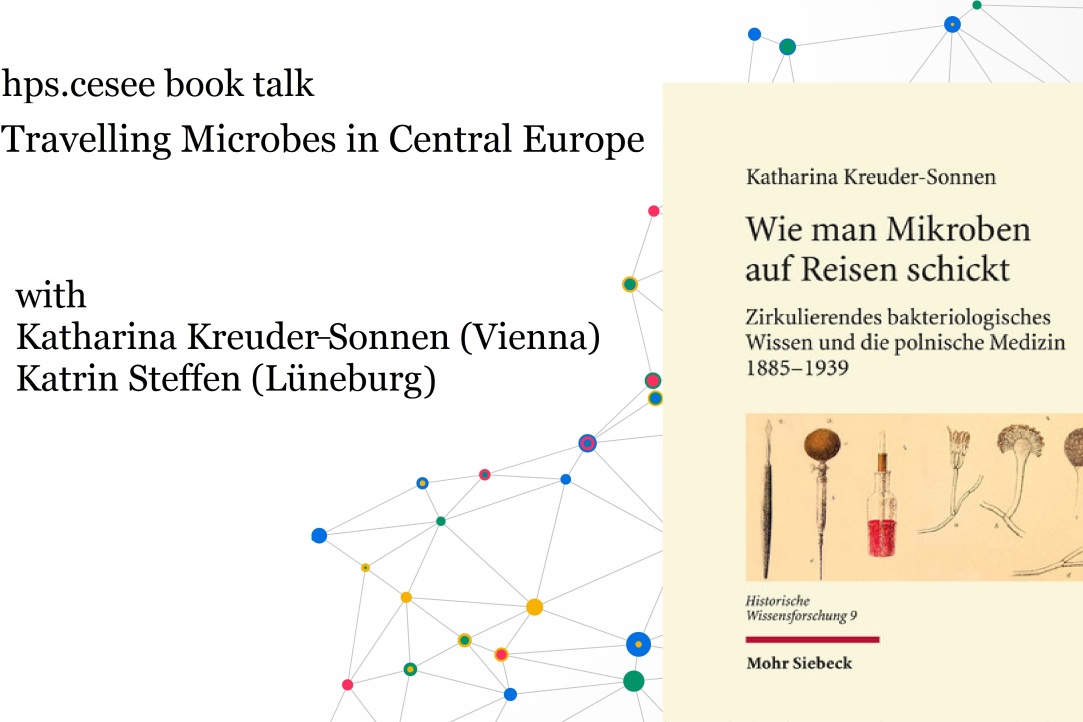Webinar “Travelling Microbes in Central Europe”, with Katharina Kreuder-Sonnen and Katrin Steffen

Knowledge does not travel just by itself. It needs laboratories, but also logistics to be moved. Katharina Kreuder-Sonnen’s monograph [*], published in 2018, looks at the circulation of knowledge from the perspective of the material turn, tracing techniques applied by Polish physicians to mobilize microbes in laboratories, make them moveable, and then finally move them. The book presents a multilayered history of medicalization in Central Europe from the end of the 19th century to 1939: It ranges from a global perspective on the exchange between laboratories in Paris, Tunis or Lwów, through the history of mobilizing medicine for cultural and state nationalism, to the inclusion of bacteriology into the daily practice of physicians. It integrates Central Europe into a global history of knowledge and leads us to rethink the categories center and periphery in the history of knowledge production.
Katharina’s book served us as the point of departure for a discussion of the potential of the material turn for the history of science in Central and Eastern Europe. The discussion was introduced by Katrin Steffen (Lüneburg).
[*] Katharina Kreuder-Sonnen: Wie man Mikroben auf Reisen schickt: Zirkulierendes bakteriologisches Wissen und die polnische Medizin 1885–1939 [How to Make Microbes Travel: Circulating bacteriological knowledge and the Polish Medicine 1885-1939] (Tübingen: Mohr Siebeck 2018)
Katharina Kreuder-Sonnen is a research and teaching fellow in contemporary history at Vienna University. She received her PhD from the University of Giessen (Germany) and held fellowships, among others, with the Max-Planck-Institute for the History of Science, Berlin and the German Historical Institute in Warsaw. Her book was awarded the dissertation prize of the German Historical Association as well as the dissertation prize of the German Association of Historians of Science, Medicine and Technology. She is currently pursuing a second book project in the global history of large construction sites.
Dr. Katrin Steffen is a historian at the Northeast Institute Lüneburg at the University of Hamburg. She works on the transnational history of Poland in 19th-20th centuries, Jewish history and history of scientific knowledge and mobility. In her current project, she works on the parallel, transnational biographies of Jan Czochralski and Ludwik Hirszfeld spanning the German‐speaking countries and Poland.
hps.cesee (History of Science in Central, Eastern and Southeastern Europe) web page
